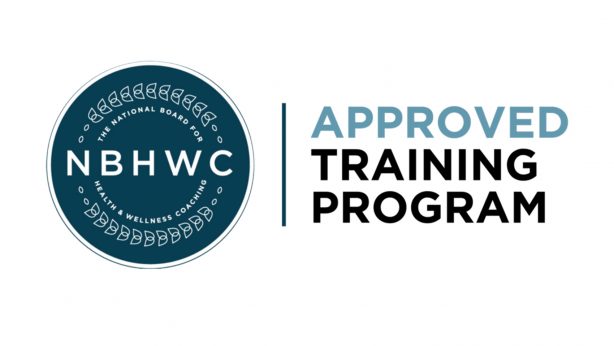
Health Coach Vs Personal Trainer
Consumers no longer define “wellness” as “enhanced exercise and nutrition,” but as a much broader and more holistic approach that includes better long-term health management, mental health (particularly, mindfulness), and sleep.
Here come the health coaches.
Wait. “Wellness coaches”? In case you were wondering, the answer is yes. Personal trainers and health coaches are not the same things. But how do these two occupations differ? And is there any overlap between the two? Find answers below to help you decide which job path in the health and wellness business is ideal for you.
What Is the Role of a Health Coach?

A health coach assists customers in improving their overall well-being and health by providing them with the knowledge of solid dietary principles and healthy living behaviours.
Health coaches assist clients in developing self-care skills, habits, and healthy behaviours that are essential for overall wellness. As a result, they can assist with a wide range of health challenges, from managing chronic diseases to quitting smoking, from improving diet and exercise to coping with a life-changing health event (e.g., a diabetes diagnosis).
In other words, health coaches serve as a client’s personal health “cheerleader,” assisting them in locating the resources they require to make healthier lifestyle choices and reach their health objectives.
What Is the Role of a Personal Trainer?
A personal trainer works with customers to help them accomplish their fitness goals (e.g., weight loss, improved body composition, and enhanced athletic performance).
They create fitness programmes, demonstrate proper workout execution, measure progress, and make necessary adjustments to training schedules. Depending on their specific qualification, a personal trainer may also provide meal plans and dietary instructions using MyPlate, a government-recommended version of the Food Pyramid.
Key Differences Between a Health Coach and a Personal Trainer
Scope of Practice
The primary distinction between a health coach and a personal trainer is immediately apparent.
A personal trainer’s scope of practice is narrower and more defined than that of a health coach. Personal training is largely concerned with fitness—creating well-designed workout routines, advising customers on proper exercise forms, and training them to maximise athletic performance.
A health coach, on the other hand, deals with a far broader variety of difficulties, such as stress management, sleep hygiene, and numerous lifestyle behaviours (e.g., alcohol and nicotine use).
However, there is a significant caveat: the field of work for a health coach is limited.
Finally, health coaches lack the same training and credentials as medical professionals such as doctors, psychiatrists, and nutritionists. That means they cannot diagnose a medical condition (e.g., general anxiety disorder) or attempt to treat it. Note: These limitations apply to personal trainers, too.
Expertise Specialization
While the limited scope of practice of personal trainers may appear to be a disadvantage, this is not always the case. Personal trainers make up for their lack of breadth coverage with their depth of knowledge as fitness professionals. What does this imply?
As an example, suppose a client wants to gain muscular mass.
While a health coach can help a client be consistent with their workouts, they may not be aware of what is required for maximal growth.
A health coaching credential, in particular, does not teach concepts such as muscle architecture, muscular adaptations in response to exercise, and progressive overload—foundations required for a well-designed “hypertrophy workout programme.”
The same is true for any fitness goal, whether it is increased strength, cardiovascular fitness, or even power.
Working Environment
Another distinction between health coaches and personal trainers is their working atmosphere. Health coaches typically perform their sessions remotely (by phone or through web-conferencing tools).
Personal trainers, on the other hand, typically deal with customers physically in a gym or other type of fitness facility setting.
It’s also worth mentioning that, as the epidemic has shown, personal trainers can conduct their sessions online.
While the efficiency of remote personal training has been hotly debated (particularly for customers new to fitness), the effectiveness of health coaching has been demonstrated. According to research, remote health coaching is just as beneficial as face-to-face counselling.
Health Coaches’ Education

Students interested in a career as a health coach should first earn a bachelor’s degree in a related profession such as nutrition, counselling, fitness, psychology, wellness, nursing, or health care.
Although a bachelor’s degree is regarded a professional requirement, job candidates with a master’s degree or above may be more appealing to hiring managers, particularly when they need health coaches to serve vast, diverse populations. Furthermore, health coaches with postgraduate degrees may be better prepared to apply for higher administrative or managerial positions.
However, regardless of how far a health coach’s education is extended, it is frequently preferable to select a programme that combines academic coursework with experiential learning opportunities such as internships. This type of diverse curriculum serves two functions.
Many prospective health coaches have prior professional experience, including in healthcare. There are health coach training programmes for your qualifications, regardless of whether you have a college degree, related wellness training, or a high school diploma.
Here’s a look at some different health coach programmes to help you decide which educational path is best for you.
Selecting a Program
The majority of health coaching programmes are available online and award a degree upon completion. When researching schools, keep in mind the admission requirements, your professional aspirations, and where you wish to work.
Although the variety of programmes is beneficial, there is no one national accrediting agency that provides accreditation exclusively for health coaching programmes, and there are no national schooling, licence, or certification requirements to begin working as a health coach.
This means you’ll need to look thoroughly at programmes to see if they provide the training you need for the job you want.
Health coaching programmes are provided by:
- Private health coaching institutions
- Professional associations
- Colleges for the general public
- Universities and institutions with four years of study
When contemplating a programme, you should first determine whether you match the admission requirements. Next, check for the following elements:
- Curriculum focused on science:
The science-based curriculum provides training based on tried-and-true coaching practises, preparing you to give the finest possible services to your customers.
- Coaching is provided in real-time:
Coaching procedures can be learned through interactive and live coaching training. This can happen in either online or in-person classes.
- Coaching practice sessions:
If you’re new to coaching, feedback will help you learn new strategies and skills.
- Health and wellness education:
While you will not be diagnosing or treating clients, you will need a basic awareness of nutrition and exercise, as well as common chronic diseases such as diabetes, high blood pressure, and obesity.
Four Essential Qualities of a Successful Health Coach
Whether you have prior healthcare experience or simply a desire to help others, a health coaching programme will help you master the knowledge and skills necessary to flourish in any context.
While the curriculum varies by programme, you should leave a standard health coaching programme with the foundation for four critical abilities.
Active listening: entails paying close attention to what a client is saying, studying their behaviour and body language, avoiding interruptions at all costs, and summarising and reflecting on what you hear to ensure that you comprehend their message.
Motivational interviewing: This collaborative strategy is used by coaches to assist clients in resolving ambivalence and discovering internal motivation.
Positive psychology: This collaborative strategy assists clients in focusing on and building on positive behaviours and character qualities rather than focusing on dysfunction and attempting to fix what’s “wrong.”
Change readiness: is founded on the assumption that change happens gradually and in stages. When a client is ready to change, a great coach can detect it and help them as they progress through the stages to reach their objective.
Accreditation
Accreditation is a stamp of approval for a school or program’s education quality and standards.
Weljii offers a plethora of professional courses starting from the Foundation Course to the National Health & Wellness Coach Certification Course (Associated with HSSC) to the Global Health & Wellness Coach Certification Course (Approved by NBHWC).


